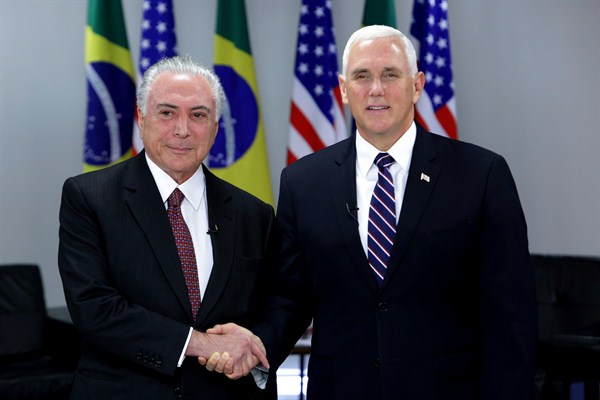This summer has seen consecutive visits to Brazil by senior U.S. officials, first Vice President Mike Pence in late June and then Defense Secretary James Mattis last week. The visits took place amid domestic political turmoil in Brazil and the ongoing crisis in neighboring Venezuela. According to Riordan Roett, professor and director emeritus of the Latin American Studies Program at the Johns Hopkins School of Advanced International Studies, these American overtures are unlikely to have any tangible impact on bilateral relations in the coming years. In an email interview, he explains why.
World Politics Review: How has the Trump administration approached ties with Brazil, and what have been the key political, economic and security issues underlying the bilateral relationship?
Riordan Roett: Secretary Mattis’ recent visit is a welcome sign that one of the most serious members of the Trump administration has prioritized Brazil, at a time when there is little evidence that the White House is doing the same. Mattis raised the issue of collaboration with Brazil on space research, referring to its Alcantara space center near the equator, but the Brazilian military is very sensitive to what could be seen as outside interference in its highly prized space program. It may be that China was a topic of discussion, given Chinese interest in space exploration and technology. A Chinese outpost in the Amazon would be seen by some in Washington as a direct security threat to the United States.

